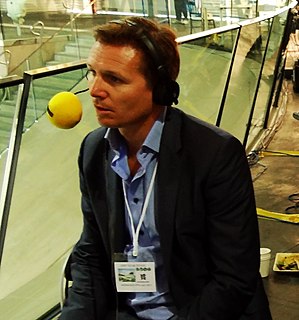A Quote by Tim Cook
I don't subscribe to the view some people have in the industry that you should purposefully design products that do not last that long. I don't think it is good for anyone.
Related Quotes
Good design is innovative
2. Good design makes a product useful
3. Good design is aesthetic
4. Good design makes a product understandable
5. Good design is unobtrusive
6. Good design is honest
7. Good design is long-lasting
8. Good design is thorough, down to the last detail
9. Good design is environmentally friendly
10. Good design is as little design as possible
The most common misperception is the word 'design'. People think of primarily pretty pictures or forms. They don't understand the depth to which design goes-not only in products, but in every aspect of our life. Whether it is the design of a program, a product or some form of communication, we are living in a world that's totally designed. Somebody made a decision about everything. And it was a design decision.
I really hope that I can be as good as some people think I can be. But I may never work again... and that's the reality of the film industry. So, it's nice but I wouldn't want to go into something feeing like I needed to prove that I was good enough to be there. Maybe in some ways, it makes me think: "Do you know what? Some people think I'm alright, so maybe I should go into a job thinking I'm not rubbish." But I don't really think about it.
Who are the governing bodies to say what is a good and a bad behaviour? I think that's unacceptable, even from an ethical point of view. I don't think anyone on this planet should be able to point at people and say this. For example, if it's not dangerous for other people, you should be allowed to break a racket. It's my racket, it's my problem.
Endless data show that diverse teams make better decisions. We are building products that people with very diverse backgrounds use, and I think we all want our company makeup to reflect the makeup of the people who use our products. That's not true of any industry really, and we have a long way to go.
I have a long list of how people call me: 'The Prince of Design,' 'Beethoven of Design,' 'the Dutch Prince of Design' and the list goes on and on and on... and also the 'Lady Gaga of Design!' I am fine with it. I think she is an amazing character who has innovated the music scene and is respected by so many people; she is surprising.


































